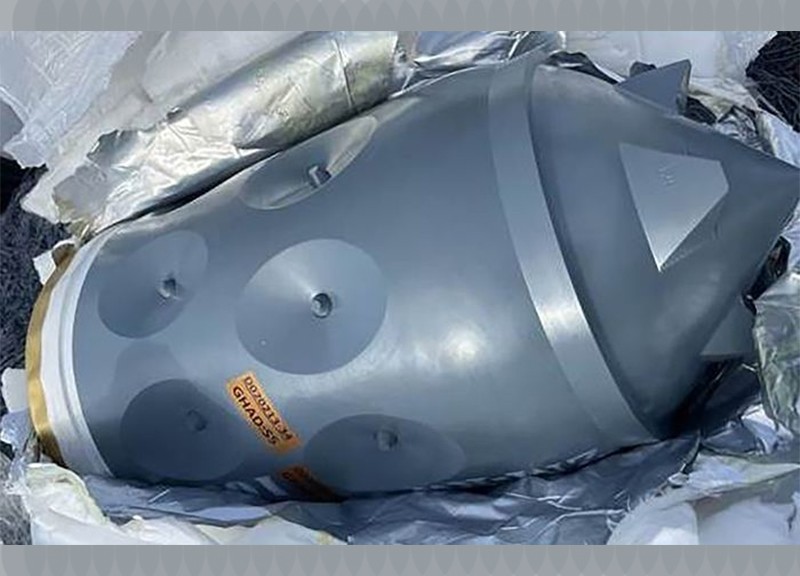
Tehran has sent high-tech missile components and drone jammers
By Benoit Faucon, the WSJ
Iran is sending increasingly sophisticated weapons to its Houthi allies in Yemen, Western officials and advisers say, enhancing their ability to attack merchant vessels and disrupt international commerce despite weeks of U.S-led airstrikes.
The Houthis, once derided as a ragtag militia operating in Yemen’s arid backcountry, have emerged as one of Iran’s most capable proxies, these officials and analysts say, due to the flow of weapons from Tehran—and their own homegrown ingenuity.
Among other high-end gear, Iran has provided the Houthis with drone jammers and parts for long-range rockets and missiles. The Iranians and their Lebanese Hezbollah allies have sent advisers to Yemen to help the Houthis plan and launch their attacks.
The Houthis' missile and drone attacks on merchant men and U.S. warships, which the group says come in retaliation for Israel's war on Hamas, have prompted two weeks of American and British counterattacks. Those, in turn, risk drawing Washington into a long-running tit-for-tat military campaign and escalating the U.S.-Iran proxy war. As the Houthis come under pressure from U.S. strikes, Western officials see signs they are adapting militarily, and they say the new technologies could increase the effective ness of the Houthis' attacks on ships and Israeli territory.
On Monday, the U.S. and the U.K. launched a second major assault against eight Houthi locations, the eighth time the U.S. has targeted the group and its weapons, many of them provided by Iran. U.S. officials said the strikes destroyed missiles, drones and weapons-storage ereas.
On Jan. 11, the day before the first of those Western counterstrikes, U.S. Navy SEALs seized a vessel laden with state-of-the-art Iranian military technologies, the Western officials and advisers said. Those included assembly kits for the Ghadir, an Iranian antiship rocket with a range of over 200 miles that the Houthis haven't been using before; engine nozzles for the Toufan, a ballistic missile recently unveiled by the group that could target Israel more effectively; and optical extensions designed to improve the accuracy of drone attacks. Three days earlier, Omani authorities also confiscated drone jammers, which Western officials and advisers said had also come from Iran.
Along with the weapons, Iran's Islamic Revolutionary Guard Corps and its Lebanese ally, Hezbollah, have dispatched advisers to Yemen to assist the group's naval at tacks and the launch of rock- ets and drones, Western security advisers and officials said.
Tehran engages smugglers to bring the weapons to Yemen from Iran and middlemen to purchase spare parts through front companies, they said. Engineers in Yemen and other countries in the region help assemble the missiles and drones and operate them, and shipping-industry workers provide live intelligence about which vessels to target, the security advisers and officials said.
"Iran is a supplier of the Houthi and has provided equipment and training and expertise to other proxy organizations in the region," a senior U.S. defense official said late Monday. "We have communicated...that we consider that activity to be unacceptable." A spokesman for Iran's delegation at the United Nations didn't respond to a request for comment.
Iran's assistance to the Houthis is handled by some of the most elite officers in the Revolutionary Guard. The head of Tehran's operations in the country is Abdolreza Shahlai, who once oversaw attacks on U.S. soldiers in Iraq, the Western security advisers and officials said. He is now wanted by Washington with a $15 million bounty.
Iran insists it has no involvement in Houthi operations and that the group's actions are solely driven by anger over the war in Gaza.
But Iran analysts said that while the Yemeni faction acts largely autonomously, Iran is allowing the situation to escalate because it serves its agenda of pressuring Israel and the U.S. without fear of direct retaliation.
"Iran's military DNA is to deny responsibility and get others to do the dirty work," said Saeid Golkar, an authority on Tehran's security services at the University of Tennessee at Chattanooga.














